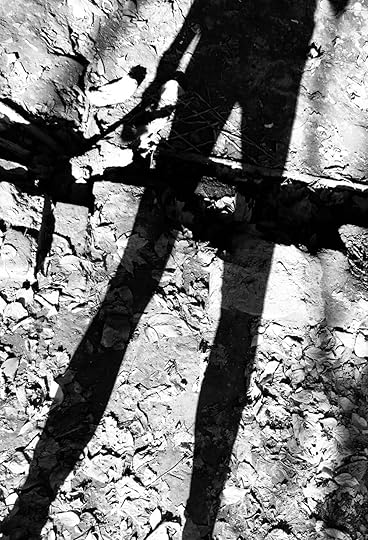Reconciling Idealism with Validation for Reality
The water rushed from the manufactured waterfall with the same intensity as the feelings rushing to the forefront of my every thought as I stood under the high noon sun staring into the garden for answers. Taking a walk from the office had offered little solutions and with every attempt to process the information, I found myself desperate for a sounding board, an understanding friend, a subject matter expert to tell me right from wrong.
“I understand he can be an asshole,” I thought to myself—rationalizing the acceptance of bad behavior with a surrendered hope for meaningful change. I’m all too familiar with the problem; the rhetoric. I’ve tried to create positive change through heartfelt dialogue, pleas and even threats and punishment.
Embarrassment, anger, avoidance and sadness are all emotions that I have felt and expressed. Overwhelmingly though there is a sense of resignation as I attempt to reconcile idealism with the reality of the situation.
There are circumstances in life that you simply do not ask of which to be involved. They happen to you, and while we prefer to give a greater sense of meaning to these life events and even believe that part of our own higher being called upon them for a greater understanding; the hard reality is that life just happens. We are born into situations. We stumble into new chapters. Life evolves. What is most certain, however, is the power each of us wields in how we can process and deal with life’s lemons. As I wrote in my book, we have opportunities to learn to ‘love our afflictions’.
Those afflictions, however, still must be validated and truth be told they deserve an honest, at-times gut-wrenching validation that is not always sensitive, appropriate or selfless.
And that is the gray area in which I want to linger to ask the poignant question we should all be asking.
Is it okay to validate insensitive, yet honest, feelings of regret and dissatisfaction for the challenging situations in life that you didn’t sign up to experience?
A curious little girl with a wandering finger up her nose and a little brother’s ugly response of revulsion would kick start a long diatribe of well-intentioned advocacy via text from my care provider. My son, six-years-old, expressed anger, discontent, and frustration in having a sister with severe disabilities. “Eew, she’s picking her nose…. She’s gross…. I don’t want her as my sister… I hate her condition….”
It was an angry spew of hate and indifference that I am ashamed to admit came from one of my children. But it was also an honest expression of feelings from a little boy that is only beginning to reconcile the sibling dynamic of which he was born into and of his fledging recognition of social norms.
To his simplified thought process, this sister is different than other sisters and her behavior doesn’t reflect the social norms, nor does her behavior carry the same expectations that are expected of him. She is older, yet still wears diapers, doesn’t formulate speech in the same way, and isn’t largely able to reciprocate. He is both a little brother and somehow an older brother to the same sibling at the same time.
Compassion and understanding are automatically expected of him--without any validation for how challenging it is to be a sibling of a child with intellectual and physical disabilities. And some will say, why shouldn’t it? He has every advantage in life. He can walk, he can talk. He wasn’t born needing surgeries. He has a greater life expectancy. He will, for all intents and purposes, have a “typical” life without knowing the day-to-day-moment-to-moment challenges of pure survival.
Truth be told, however, as much as his sister didn’t ask to be born with her challenges; he also didn’t ask to be born in the shadows of “a miracle child”.
Neither of my “typical” children asked to be born in that long-casted shadow, and while one is full of grace, compassion, and understanding; one is simply still processing and loudly expressing his grief.
A child, such as our daughter with disabilities, is a gift that transcends boundaries of Heaven and Earth, but it is also a phenomenon that is a moth to a flame for public attention. With every eye on her, there are eyes turned away from two other children standing in her shadow. The Disney princess that turns to one, while turning away from the other. The stranger eager to give a treat to a child in a wheelchair but ignores the child pushing the wheelchair.
I can only surmise what it feels like to be a child in the constant shadows of a miracle sibling, all the while expected to carry the burden of future care provider, bearer of infinite compassion and selflessness--- with the expected void of validation of their personal struggles.
In an ideal world, we heal without feeling burden. We care and cope without needing affirmation for the challenges we encounter. In an ideal world my son at age six would possess endless amounts of compassion for a sibling with disabilities that is also annoying him in a very typical, age-appropriate, sibling rivalry way as summer vacation is growing stale.
But we don’t live in an ideal world. We live in a world that needs understanding and recognition for all of life’s lemons.




